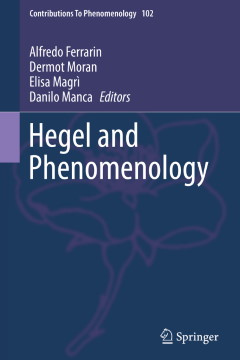Hegel's critique of foundationalism and its implications for Husserl's dream of rigorous science
pp. 61-75
Abstract
Hegel sees philosophy as the only rigorous science that does not have any presupposition, but he rejects the possibility of an absolute foundation for philosophy, instead maintaining that only the system as a whole can be free from all presuppositions. Hegel's system lays claim to presuppositionlessness, not on the ground of any presuppositionless beginning, but rather as a holistic system of concepts in which inevitable presuppositions are made transparent and comprehended. This paper examines Hegel's analysis of the concept of immediacy and his critique of the foundationalist conception of philosophy. Although Hegel's critique is targeted against his predecessors and contemporaries, it has important implications for Husserl's phenomenology, which represents one of the most ambitious foundationalist projects in the history of philosophy. The final part discusses the later development of Husserl's thought and his introduction of the concept of lifeworld in light of Hegel's critique.
Publication details
Published in:
Ferrarin Alfredo, Moran Dermot, Magrì Elisa, Manca Danilo (2019) Hegel and phenomenology. Dordrecht, Springer.
Pages: 61-75
DOI: 10.1007/978-3-030-17546-7_4
Full citation:
Lau Chong-Fuk (2019) „Hegel's critique of foundationalism and its implications for Husserl's dream of rigorous science“, In: A. Ferrarin, D. Moran, E. Magrì & D. Manca (eds.), Hegel and phenomenology, Dordrecht, Springer, 61–75.


